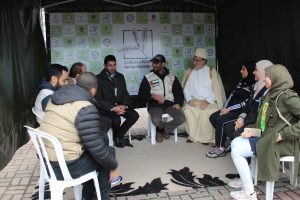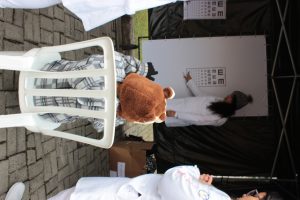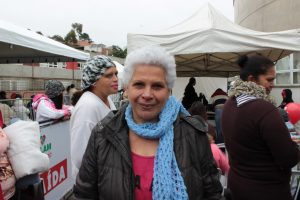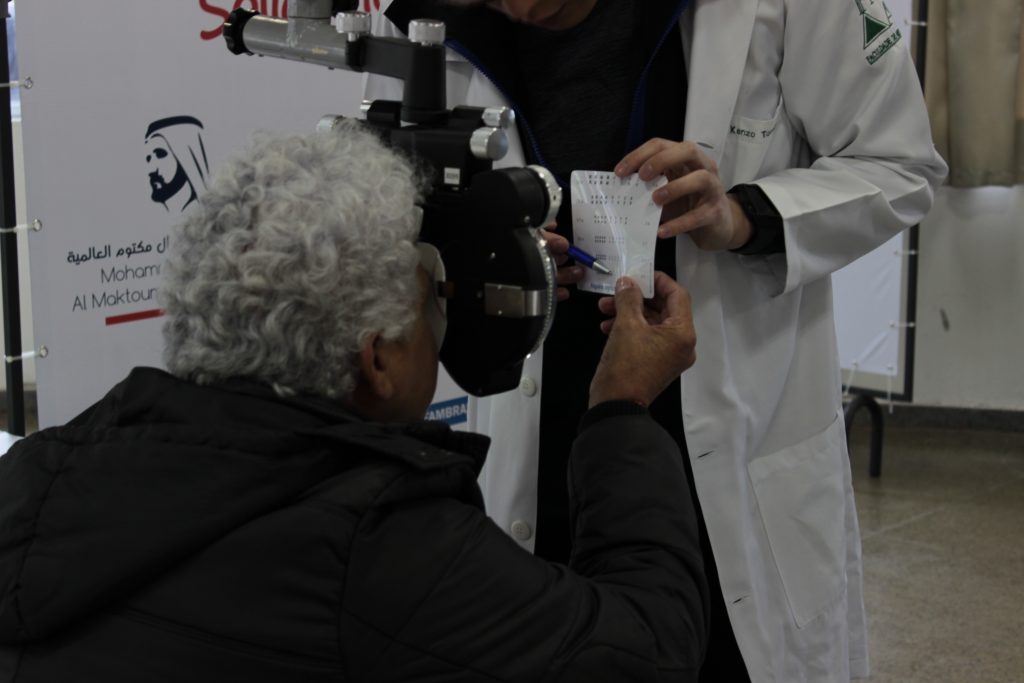São Paulo – The crowd stood in a line that went around the corner of community center CEU Parelheiros last Sunday (4) morning, waiting for the gates to open. The event, which began at 10 am, was Solidarity Islam, an initiative of the Federation of Muslim Associations in Brazil (Fambras) with backing from Mohammad Bin Rashid Al Maktoum Foundation Global Initiatives and the UAE Consulate General in São Paulo.

On the day São Paulo saw the coldest temperatures of the year, 20,000 people showed up. Amid the residents, the Foundation’s Arab delegates toured the CEU, seeing the facilities and witnessing the health, culture and leisure activities they helped enable.
UAE consul general Ibrahim Salem Alalawi and Fambras vice president Ali Zoghbi escorted the Foundation delegates, including director Saleh Zaher Al Mazroui. On his first trip ever to Brazil, he remarked that four years into the partnership with Fambras, actions have really taken off. At first, Solidarity Islam would cater to some 5,000 people – 15,00 less than in the last two editions.
Better eyesight
One of the reasons most mentioned by the population for attending Solidarity Islam was eye exams. There were 500 passes available. “It takes a very long time to schedule these via the SUS (the Unified Health System). Here we get to do all kinds of eye exams,” explained Dilma Pereira da Silva Nogueira. She arrived at 4:45 am to secure a spot in the line that would form, alongside people who spent the night there, some of whom had brought their blankets.

In addition to funding from the UAE foundation, Solidarity Islam arranged for the donation of eyeglasses in partnership with Associação HLVer, which makes affordable glasses for underprivileged people.
Dilma, who’d undergone diabetes and blood pressure testing in the last edition of the event, brought her friend Marlucia Rosa Teixeira this time around. They both live near the CEU. “We’re glad to know that they care about the people and are willing to help. You don’t see that every day,” she said.
The social action saw services provided to the population of Parelheiros and the indigenous community at the Tenondé Porã village, as reported on by ANBA on Thursday (8). Apart from medical exams, tents were offering aesthetic treatments, services including issuance of birth certificates, and donations of 3,000 toys.
Eliane Faria Aguiar brought her son for the eye exam and a DNA test, available at the event for the first time. “I’ll take the [DNA] test because of my family, who thinks he (the son) looks too much like me and unlike his father. It’ll be a good thing for me to clear up their doubts,” she said. The number of DNA tests was also limited, and Eliane arrived at 6:45 am to make sure she got both. “It was worthwhile. I already knew he needed glasses, but they were more expensive than we could afford, unfortunately,” she explained.

Noemia Barbosa also left with her exams done and an expectation to get her glasses soon. “I found out about it using my neighbor’s internet connection. I’m from out here in Parelheiros, from [the neighborhood] Colônia. I got up at 2 am and got here at 5 am. What can you do, right? If we’ll leave home in the early hours to work, right, honey? Why wouldn’t we do it when we need it! Because, you know, this is a faraway place,” she said. Set in far south São Paulo, Parelheiros is only 10 km up a mountain range from the ocean.
Noemia had been to an eye doctor and had known for over four years that she’d need glasses to see things from up close. “This is a heaven-send for people who need it. The people who come out here, they’re here to see a doctor. Did you see the amount of people by the eye doctor? It’s just an endless stream of people,” she said.
Translated by Gabriel Pomerancblum




